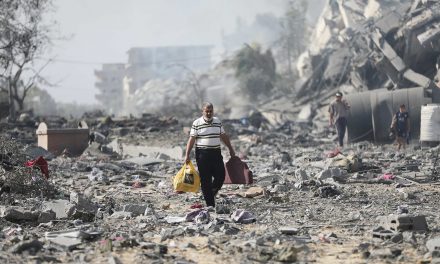
For more than a decade, I’ve worked to eradicate human trafficking in Milwaukee and beyond. As part of my work with Foundations for Freedom Inc., I’ve gotten to know the young girls and women who are forced into sex work and how it impacts their lives long after they have escaped that environment.
However, in Wisconsin, we don’t make it easy for these young women to adjust to normal life. The average age of girls who are trafficked domestically is 13. When trafficking begins, the victims are introduced to a life that includes not only trauma, but crimes as well – from theft to drugs and worse.
More often than not, our penal system treats these teenagers — who legally cannot consent — as if they were in that situation voluntarily. The reality is traffickers use force, fraud and coercion to get these young women to do what they tell them. By ignoring that and focusing on the crime, our justice system locks them up in a youth prison, away from their communities, families and any support systems they have.
Taking these young girls into custody might help them temporarily avoid a bad situation, but it does not make them safer and it does nothing to prevent them from being victimized again, especially as some do not self-identify as being trafficked. Research shows that youth prisons exasperate underlying trauma and prevent young people from healing or repairing the damage they’ve caused.
Thankfully, there is a better way to help these young women. Recently, the Safe Harbor legislation, which prevents minors from being charged with soliciting, was introduced in the state Assembly. If the Senate, Assembly and Gov. Tony Evers approve the legislation, it will be a major step forward to prevent the unnecessary incarceration of trafficked girls.
But that legislation alone isn’t enough. Closing Copper Lake is essential to ensuring that young women are safe and receive the trauma-informed care they need. Wisconsin must resist locking these girls up in similar facilities that don’t provide them with the support they need to heal. We can’t have a one-size-fits-all approach to trauma.
Right now, the state is set to add more beds to the Mendota Juvenile Treatment Center in Madison to accommodate girls who are currently in Copper Lake. Milwaukee’s young women make up the majority of the girls behind bars – so it does not make sense to send them to Madison, farther away from home. To make matters worse, Mendota has no experience in treating teen girls and there has been little transparency about the programming and treatment it intends to offer.
Additionally, this plan assumes that every struggling young woman needs placement in a restricted setting. Mendota also does not have space for young people who identify as trans – a group that is disproportionately incarcerated and highly marginalized. Instead of adding beds to Mendota, Wisconsin should invest in existing out-of-home programs in Milwaukee, where young women and trans youths can receive support nearby their support systems and homes.
Furthermore, imprisoning trafficked girls does not address underlying issues, which lead to contact with the justice system in the first place. Prison also makes it harder for young people to finish school; get jobs and housing in the future; and build the positive relationships that will help them become productive adults.
What most of the young women who I meet really need is housing and wrap-around supports that go above and beyond to help them succeed. There are no short cuts to heal the emotional, physical, sexual and psychological trauma that comes with human trafficking. However, adequate housing, jobs, food and programs to help them rebuild their confidence is essential to helping them grow into healthy women.
At Foundations for Freedom, a program called Project PINK helps girls assimilate back into school and rebuild their self-esteem, worth, value and help them learn the skills they need to thrive. This is just one example of the types of programs Milwaukee can scale up and support as we prepare to close Copper Lake and work to reform our justice system. Each girl, each young person, each individual is different – so we can’t settle for a one-size-fits-all approach.
We can create a system where youth prisons and locked doors are not the default response to youth who make mistakes or fall victim to human trafficking. At Foundations for Freedom, we focus on planting seeds to show youths what a better life could look like – but we have to come together as a community to support that vision.
Dana World-Patterson
Originally published on the Milwaukee Neighborhood News Service as OPINION: Let’s not revictimize the young victims of human trafficking














